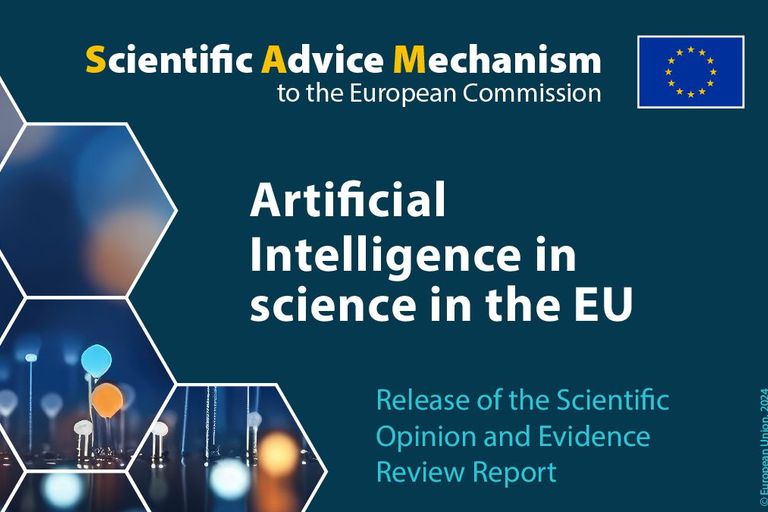Successful and timely uptake of artificial intelligence in science in the EU (Scientific Opinion)
A new European institute for Artificial Intelligence in science and technologies of the future must be driven by people and communities, not only by profit: these are two key messages by the Group of Chief Scientific Advisors of the EU.
The new institute would provide massive high-performing computational power, a sustainable cloud infrastructure and AI training programmes for scientists. Additionally, the advice is to promote research on the philosophical, legal, and ethical issues that arise when AI is used in science, and the impact this has on fundamental human rights, transparency and accountability.
These recommendations support the EU strategy for AI in research and innovation. They were produced in the context of the Scientific Advice Mechanism and are based on a report by the Academies’ consortium SAPEA. Nominated by the Swiss Academies of Arts and Sciences (a+), Andrea Emilio Rizzoli from the Dalle Molle Institute for Artificial Intelligence in Lugano co-chaired the group of scientists that drafted this report.
Edizione / Volume: Scientific Opinion, 15
Dichiarazione Pagina: 98 p.
Numero standard: ISBN 978-92-68-10084-4 / doi:10.2777/08845
Contatto
Dr. Roger Pfister
Accademie svizzere delle scienze
Casa delle Accademie
Casella postale
3001 Berna


